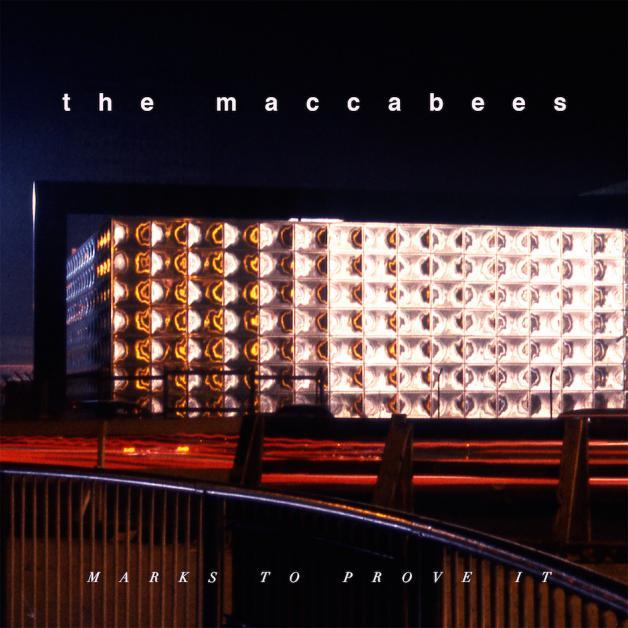HIATUSES are more often than not indicative of a band that have made the informed decision to completely re-examine their approach and see what road it shall lead them on. For The Maccabees, it is evident that their period of absence from the music scene saw them take stock of what they felt needed refined and how they should progress as artists on fourth record Marks To Prove It.
Coming off the back of their third album Given To The Wild; a record which was frequently cited as their finest, the London-based five piece unquestionably must have felt a considerable amount of pressure to continue their quest to improve with every passing album.
On their fourth and most expansive record yet, it’d be fair to say that they may well have done just that. The LP’s eponymous track is as enticing an opening statement as you’ll find on any record this year, one which is equally dominated by a bold guitar line that smacks of the legendary Mick Jones’ signature playing style and an entirely uplifting chorus.
Things soon take a turn towards something altogether more discombobulating due to the use of eerie, carnival style organ that denotes the refreshingly unorthodox approach they they’ve taken with this record. In addition to being a superb song in its own right, this track serves as the embodiment of an ongoing motif in their career in which they manage to strategically pit their more radio friendly leanings against a thirst for sonic exploration in a truly fascinating way.
Bass-heavy and anchored by atmospheric yet splashy percussion,‘Kamakura’ is a slow burner that comes to fruition with the addition of pangs of idyllic guitar during its second verse.
Spurred on by an inviting riff that makes its presence felt throughout, ‘Ribbon Road’ is an exercise in restraint from The Maccabees; masterfully resisting the urge to ramp things up until the halfway point in order for the eventual pay off to be all the more wondrous.
Capturing an aesthetic which is similar to that of various tracks on the album’s predecessor, it adopts several stylistic tropes of what was an immensely popular endeavour but comes across less frenzied and more conscious of the virtues of a conjuring a substantial sound.
Instantaneously impressing when released just prior to the album’s release, ‘Spit It Out’ is every bit as illuminating when taken in the larger context of the full length.
Taking their cue from the immediately riveting style of prolific songwriters such as Bruce Springsteen and Tom Petty, ‘Spit It Out’ bustles with uncontainable energy as frontman Orlando Weeks delivers impassioned howls over a borderline maniacal piano loop.
Placing keys at the forefront once again, ‘Silence’ sets out with a soothing and ambient melody that is accompanied by little more than a shuffling beat before overbearing walls of noise soon wade in, casting a large but intriguing shadow over what began as fairly tranquil.
Despite the fact that the menacing sound is very much integral to the track , it does little to to detract from the track’s true nature; one of reassurance about and ultimate acceptance of life’s many battles, urging the listener not to suffer alone and shy away from hardship.
One of the most musically diverse on the record, ‘The River Song’ hinges on a recurring blast saxophone that is delivered with such a degree of vigour that it is nothing short of stunning.
Lyrically, the track carries over a similar sentiment as ‘Silence’, preaching acceptance of the fallible nature of humans and the unavoidable nature of dismay.
This is displayed most blatantly within the chorus in which they deliver a recognisable notion: “Tell yourself that you’re getting wiser, the truth is we’ve all done the same.”
Elsewhere, the gorgeous guitars of ‘Slow Sun’ are among the finest that they’ve ever delivered, acting as an intoxicant and urging the listener to surrender to the track’s incredible instrumentation.
The resonant sound of an acoustic guitar lays the foundations of the previously aired ‘Something Like Happiness’, one of the few moments on the album that is reconcilable with the hands aloft anthems that were the defining factor in their formative years.
This isn’t in any way something which derides either the track itself or the rest of the album as it is abundantly clear that The Maccabees feel no need to ensure that they’re in keeping with their past triumphs on account of the robustness and accomplished nature of what has been achieved on this record.
They’ve subverted from expectation and ploughed the depths of a stirring new approach to their music, enabling them to deviate wildly from anything that would be expected of them and do so with marked success.
Taking the reins off their guitars after a staid intro on ‘WW1 Portraits’, it is one of the most instantly striking tracks record which exhibits a weightiness to its sound that is almost overpowering.
Concluding with the appropriately titled ‘Dawn Chorus’, there’s a wooziness embedded within which is offset by jubilant horns and Revolver era Beatles-esque chorus.
Thrilling from the moment it begins, Marks To Prove It has more than justified the place that The Maccabees hold a firm grasp of in the hearts of legions of fans.
Evolving once again as though it came with ease, the album is less a collection of unrelated songs and more of an odyssey which charts the thoughts and idealisms that have came to prominence in the mind of the band during the three years that have passed since Given To The Wild.
Fighting tooth and nail with their previous album to be their undisputed best, Marks To Prove It has the wherewithal and sheer strength in its character to be an album that fans both old and new can fall unreservedly in love with.












